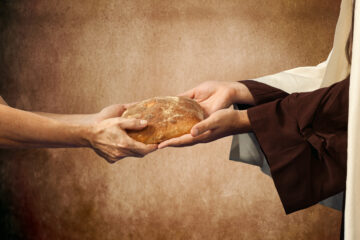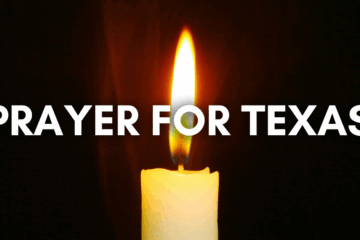Protopresbyter Themistoklis Mourtzanos
On 14 June 2023, a fishing boat smuggling migrants capsized in international waters in the Ionian Sea off the coast of Pylos, Greece. The boat, which left Tobruk, Libya, on 10 June, was carrying between 400 to 750 migrants. Greek authorities were able to rescue 104 survivors including Egyptians, Syrians, Pakistanis, Afghans, and Palestinians. 82 bodies were recovered, with hundreds more missing, presumed dead.
The criminal shipwreck of a boat off the coast of Pylos, caused by the slave-traders who were bringing to Europe a large number of people trying to reach Italy illegally, has focused attention once again on disregard for human life.
What on earth were these migrants thinking, particularly the grown-ups, when, in all probability, they agreed to pay modern slave-traders to pack them into the boat, like the African slaves who were taken to America to be sold at slave markets, particularly in the southern states? Was it enough that they were in despair because of the unfree life they were leading? Did they know they’d be exploited as cheap labor, that is as modern slaves, in advanced European economies but were still prepared to go along with this because it meant survival? Was it in the back of their minds that Allah and kismet, their fate, had decided on their illegal immigration and they were unable to say no? Were they forced to embark on this boat, as others were on a variety of ships? Was it promises from their nearest and dearest which made them overlook the wretchedness of the conditions? Because, unless the pictures have been faked, it’s inconceivable that you could eat or go to the toilet in a place where you literally couldn’t turn round. Only war refugees who were loaded onto ships, or those Jews who were packed into the trains of shame by the Nazis, to be taken to concentration camps, had no choice. Here, the set-up is blatant.
It’s no comfort that the people being transported may feel that they’re responsible. In our heart we feel profound pain, because human life doesn’t count at all. Not for those who become rich from this disgusting slave trade; nor for those who could prevent it; nor for those who shed crocodile tears and attempt, for their own reasons, to exploit pain and death. We feel helpless, because the foreigners remain foreign to us. Their names mean nothing to us, if we were ever to learn them, nor does it really strike us that they were images of God, as we are and as every person is. Like the dead in any war, any accident, any crime, they remain strangers. All we can do is pray for their souls. May God grant them rest in a place where there’s no pain, no sorrow nor sighing, but life everlasting.
We’re left with this inhumane world. A place where, on the one hand, because of technology, inventions and the media, we can live in the splendor of power and pleasure; and, on the other, it’s a place which, because of its inhumanity, with the wickedness and exploitation it cultivates without sensitivity or conscience, adds to the tally of the dead.
Let each of us add a drop of love to our prayers for our fellow human beings. Those we see and those we don’t. Those next to us and those who are foreigners. In any case, we ourselves are foreigners to other people. At least, let’s keep our hearts open and our tears sincere. Little though that is.
Source: pemptousia.com




0 Comments